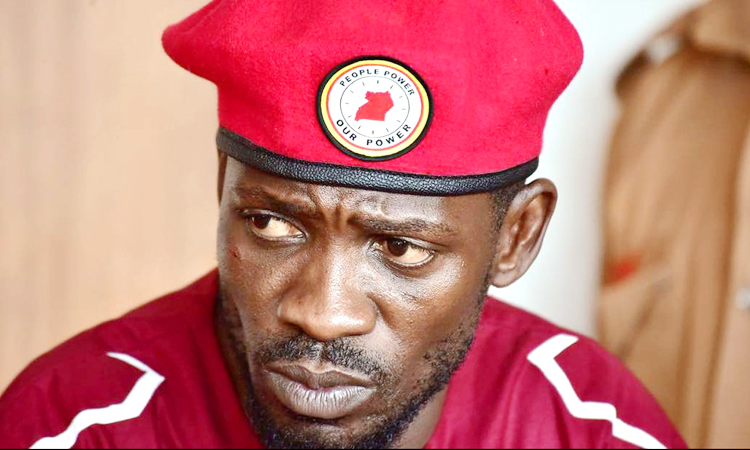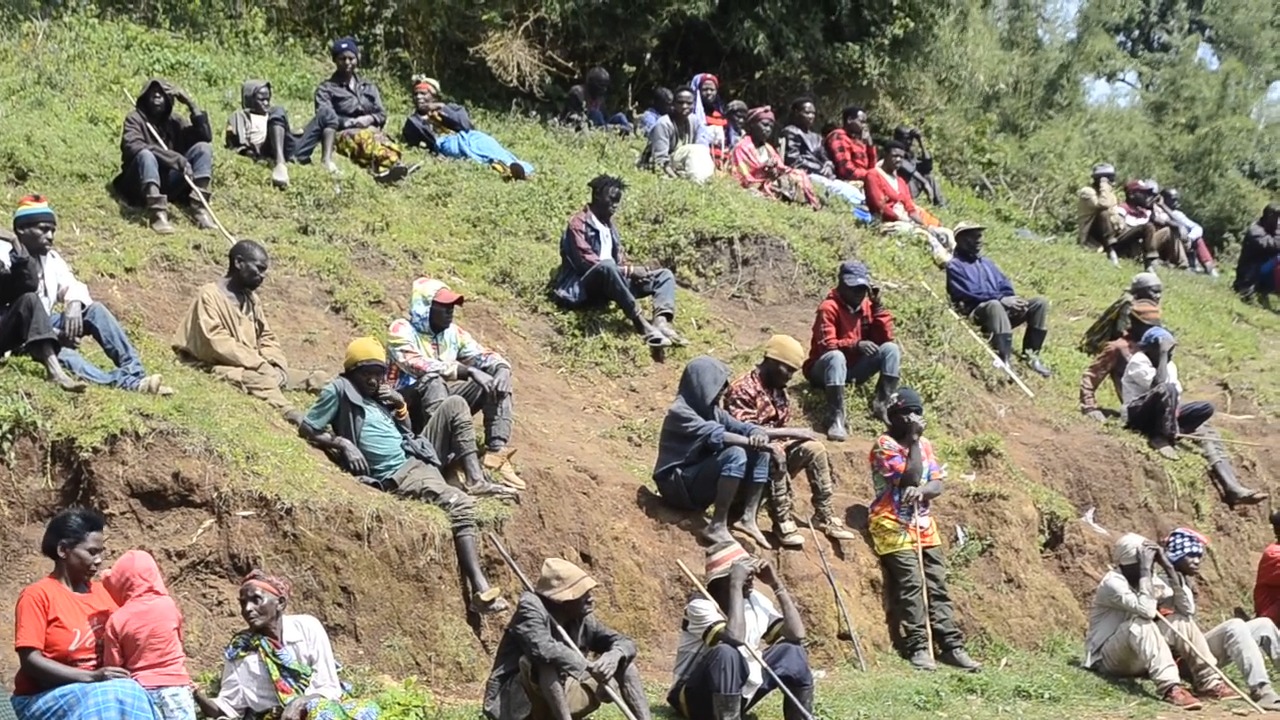Opinion: Bobi Wine did the right thing to withdraw election petition
By Samuel Obedgiu
Ugandan courts generally lack legitimacy.
Keep Reading
Robert Kyagulanyi’s decision to pull the case out of the Supreme Court was right.
Article 126(1) of the constitution of the republic of Uganda spells out the mandate of the judiciary. “Judicial power is derived from the people and shall be exercised by the courts established in the name of the people.”
This might be true on paper, but in practice, these courts normally don’t exercise their power for the people but to please their appointing authority.
They disburse justice selectively. Article 126 (2) e of the constitution stipulates that technicalities shall not be used as a magic wand to deny substantive justice.
But as we have seen in the kyagulanyi applications that arose from his main application, the courts focused way too much on technicalities to subvert substantive justice.
This appeared as though they were using them as an excuse to legitimise a rather sham election. In any presidential election in Uganda, according to section 59 of the Presidential Elections Act, if one alleges irregularities, he must go on to prove that they were substantial enough to warrant the courts to overturn the election.
“The substantiality effect"
In order, to meet this, many affidavits from all over the country must be sworn as evidence to prove that these irregularities were substantial enough.
However, the fact that every time kyagulanyi’s lawyers were seeking leave of court in to have affidavits to be admitted in as evidence were denied due to unnecessary technicalities, means the court was making it hard to proof the substantiality of the irregularities in this fraudulent election.
It’s not only politicians that lost confidence in our judicial system. Ordinary people and even international investors don’t trust it too.
For instance, once you read the umeme concession contract, it stipulates that any dispute above $13 million will be arbitrated in London and the governing law is English law.
This wasn’t done to make it hard for government to litigate against Umeme, but there is a general distrust of court processes, generally, especially when it comes to matters where museveni and his deep state cronies have interest.
There is a legal maxim that states that in the presence of arms, the law is silent. It has become immediately apparent that the prominent feature of the state in Uganda is the military that has infiltrated all facets of life. Therefore, following legal processes in such an environment isn’t going to solve any problems, especially political problems.
An example in Uganda’s history is in the case of Uganda v. Commissioner of Prisons, Ex Parte Matovu. This case commenced and sowed the seeds for the advent of the Political question Doctrine in Uganda.
It has subsequently been applied in landmark decisions such as Attorney General v. Major General David Tinyefunza, Constitutional Appeal No. 1 of 1997, wherein it was extensively applied by Justice George Wilson Kanyeihamba to distance the court from the affairs of the army and the executive authority over it, save in a few select, necessary cases.
The doctrine's effect has however been greatly curtailed, and nearly wiped out (seemingly) by the recent Supreme Court decision in CEHURD v the Attorney General, an appeal from the country's Constitutional Court's decision in CEHURD v the Attorney General, Constitutional Petition No. 16 of 2011 Retired Justice George Kanyeihamba and two of the four Supreme Court justices who voted in favour of dismissing the 2006 presidential election petition brought by opposition leader Kizza Besigye have changed their minds and now believe the elections results should have been overturned.
In 2006, they decided not to annul the election because of influence peddling from the executive. In the 2001 petition, Dr Besigye alleged that the Electoral Commission falsified results and failed to conduct a free and fair election.
He said the Commission allowed armed people to be present at polling stations, failed to efficiently compile, maintain and up-date the national voters’ register and to display it as required by law.
The number of polling stations, Dr Besigye said, was increased on the eve of polling day without sufficient notice to candidates, and that the Electoral Commission allowed or failed to prevent stuffing of ballot boxes, multiple voting and voting by under-age people.
He further alleged that his agents were turned away from polling stations, counting and tallying centres, paving the way for rigging, and that his campaign activities were interrupted by state or President Museveni’s agents.
Mr Museveni was personally accused of publishing “a false statement” that Dr Besigye was suffering from Aids, and that he offered gifts to voters, appointed partisan senior military officers and partisan sections of the army to take charge of security during the elections.
Mr Museveni was further accused of organising groups under the Presidential Protection Unit and Maj Kakooza Mutale with his Kalangala Action Plan, to use violence against those not supporting him, and threatening to cause Dr Besigye’s death.
Whereas the justices agreed with Dr Besigye on many of the allegations, three of them – Mr Benjamin Odoki, Mr Joseph Mulenga and Mr Alfred Karokora ruled to uphold the election, arguing that the extent of irregularities did not alter the final outcome.
Drawing on the lessons of 2001, Dr Besigye looked to beef up his petition for the 2006 election. He said in a statement after the ruling on the 2006 petition was delivered that many FDC members had advised against going to court because they thought, basing on the experience of 2001, that they would not get a favourable ruling regardless of whatever evidence was adduced.
He said, however, that they decided to lodge the petition to “expose and resolve the inconsistencies between the Presidential Elections Act and the Constitution”, particularly the requirement for the petitioner to not only prove that there were irregularities in the election, but also that those irregularities had a substantial effect on the outcome.
His preliminary application for this question to be referred to the Constitutional Court with the view of removing the requirement by the petitioner to prove that the irregularities substantially affected the outcome was rejected by the Supreme Court the justices argued that they had limited time – 30 days to hear and rule on the petition – and that if Dr Besigye saw this as an important issue, he should have referred it to the Constitutional Court before the time for lodging the petition came.
After the election petition was rejected, Dr Besigye petitioned the Constitutional Court to review this requirement, but the matter has never been heard by the court going into this election.
The second reason Dr Besigye went to court, he said, was to “provide the Supreme Court judges with an opportunity to show that they had reflected on the 2001 election”, which he thought they should have annulled on the basis of the evidence he adduced. The 2006 election petition was different in some respects from the 2001 petition.
Dr Besigye, for instance, hired a statistician to deduce from the evidence available how many votes Dr Besigye could have lost or Mr Museveni gained as a result of the irregularities in order to prove that the outcome was affected substantially.
In his affidavit, Dr Jonathan Odwee, the statistician, argued that one million voters had been removed from the voters roll, disadvantaging Dr Besigye. Dr Besigye had claimed in his affidavit that many of the people who had registered as voters shortly after his return from exile had been removed from the voters roll.
He claimed that many of them intended to vote for him. In his ruling, then Chief Justice Odoki wrote: "There was no proof that many voters who registered after the return of the petitioner (Dr Besigye) were deliberately removed from the register or that they were his supporters. I found that the total number of those disenfranchised were about 150,000 since many voters were in the register but did not know their polling stations."
Prof George Kanyeihamba, who ruled to annul the 2006 election, has since claimed that some two of the four judges who upheld the election have since changed their minds.
Therefore, the courts have already been exposed enough by Besigye. There is nothing Kyagulanyi seeks to prove to the public or the “court of public opinion” that Besigye hasn’t done already in the 2001 and 2006 election.
Samuel Obedgiu is the deputy national Youth Coordinator and regional liaison officer, National Unity Platform, Northern Uganda.


















